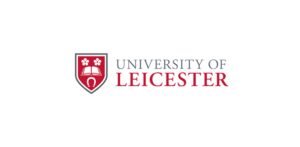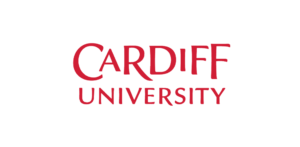Explore Fully Funded PhD opportunities at the University of Dundee, Dundee, Scotland across a range of departments. Apply now to be considered for these prestigious positions.
1. Fully Funded PhD Programs in Advanced sensing platforms
Summary of PhD Project
This project focuses on the fabrication of nanomaterial-based substrates using laser-assisted photocatalytic growth of silver and gold nanoparticles. These substrates will be analysed using Surface-Enhanced Raman Scattering (SERS)—a highly sensitive optical detection technique capable of identifying molecular structures with extreme precision.
Application Deadline: 30 September 2025
Never Miss a Fully Funded PhD Programs!
Join our Telegram & WhatsApp Channels for Daily Updates.
2. Fully Funded PhD Programs in Change, growth, or re-evaluation of priorities? Investigating response shifts in intervention and rehabilitation
Summary of PhD Project
The Living Well with Long-Term Conditions (LWLTC) research group is a group of researchers whose mission is to enhance the lives of people living with post-acute and long-term conditions to enable them to live well. The group has shared interests in understanding, developing and evaluating ways to improve the lives of people living with post-acute and/or long-term conditions.
Application Deadline: 1 September 2025
Explore Fully Funded PhD Programs in United Kingdom
3. Fully Funded PhD Programs in Assessing subjective health and health-related quality of life in low/middle-income countries: Translating the COSMOS core outcome set for multimorbidity into practice
Summary of PhD Project
The Living Well with Long-Term Conditions (LWLTC) research group is a group of researchers whose mission is to enhance the lives of people living with post-acute and long-term conditions to enable them to live well. The group has shared interests in understanding, developing and evaluating ways to improve the lives of people living with post-acute and/or long-term conditions. We seek to understand the experiences of people with long-term conditions, and those of stakeholders involved with the systems and services that support them.
Application Deadline: 1 September 2025
Explore Fully Funded PhD Programs in Europe
4. Fully Funded PhD Programs in Digital interventions to support recovery following critical illness
Summary of PhD Project
The Living Well with Long-Term Conditions (LWLTC) research group is a group of researchers whose mission is to enhance the lives of people living with post-acute and long-term conditions to enable them to live well. The group has shared interests in understanding, developing and evaluating ways to improve the lives of people living with post-acute and/or long-term conditions. We seek to understand the experiences of people with long-term conditions, and those of stakeholders involved with the systems and services that support them.
Application Deadline: 30 September 2025
Explore Fully Funded PhD Programs in United States
5. Fully Funded PhD Programs in Behaviour change interventions to support recovery following critical illness
Summary of PhD Project
The Living Well with Long-Term Conditions (LWLTC) research group is a group of researchers whose mission is to enhance the lives of people living with post-acute and long-term conditions to enable them to live well. The group has shared interests in understanding, developing and evaluating ways to improve the lives of people living with post-acute and/or long-term conditions. We seek to understand the experiences of people with long-term conditions, and those of stakeholders involved with the systems and services that support them.
Application Deadline: 30 September 2025
Never Miss a Fully Funded PhD Programs!
Join our Telegram & WhatsApp Channels for Daily Updates.
6. Fully Funded PhD Programs in How cells find the right chromosomes: the dynamic regulation of kinetochore-microtubule interactions for biorientation
Summary of PhD Project
To maintain genetic integrity, eukaryotic cells must correctly segregate chromosomes to opposite spindle poles during mitosis. This process relies on the interaction between spindle microtubules (MTs) and the kinetochore – a large protein complex providing a major microtubule attachment site on a chromosome. For correct chromosome segregation, two kinetochores on sister chromatids must interact with spindle MTs extending from opposite spindle poles (chromosome biorientation), before chromosome segregation (PMID 35563768).
Application Deadline: 31 August 2026
Explore Fully Funded PhD Programs in Denmark
7. Fully Funded PhD Programs in Diet and intestinal immune regulation
Summary of PhD Project
The aim of this project is to investigate how metabolic adaptation of IEL to the intestinal environment, allows IEL to respond appropriately to intestinal metabolic perturbations, including diet and microbial challenges. We will explore how cellular bioenergetics, macromolecule biosynthesis, and metabolite waste management are regulated in IEL, and how nutrient availability may regulate IEL cross talk with the epithelium.
Application Deadline: 31 August 2026
8. Fully Funded PhD Programs in Peer support in recovery following critical illness
Summary of PhD Project
The Living Well with Long-Term Conditions (LWLTC) research group is a group of researchers whose mission is to enhance the lives of people living with post-acute and long-term conditions to enable them to live well. The group has shared interests in understanding, developing and evaluating ways to improve the lives of people living with post-acute and/or long-term conditions. We seek to understand the experiences of people with long-term conditions, and those of stakeholders involved with the systems and services that support them.
Application Deadline: 30 September 2025
Find Fully Funded PhD Programs in Finland
9. Fully Funded PhD Programs in Inhibition of WNT signalling in colorectal cancer via targeted degradation of FAM83F-CK1a and FAM83G-CK1a complexes
Summary of PhD Project
Hyperactivation of WNT/β-catenin signalling is a prominent hallmark of colorectal cancer (CRC). Despite progress in understanding the pathogensis of CRCs, there are still limited treatment options. The Sapkota lab has recently uncovered critical roles for the poorly characterised FAM83 proteins, FAM83F and FAM83G, in activation of WNT/β-catenin signalling. Specifically, FAM83F and FAM83G activate WNT signalling through interaction with CK1α. Furthermore, loss of FAM83G-CK1α interaction and inhibition of WNT signalling underpins the pathogenesis of a skin disorder termed Palmoplantar Keratoderma caused by missense mutations in FAM83G.
Application Deadline: 31 August 2026



